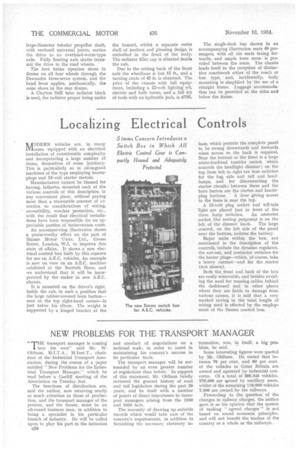NEW PROBLEMS FOR THE TRANSPORT MANAGER
Page 90

If you've noticed an error in this article please click here to report it so we can fix it.
" e'rlIE transport manager is coming 1 into his own" said Mr, WOldham, M.I.T.A. M.Inst.T., chairman of the Industrial Transport Association, during the course of a paper entitled "New Problems for the Industrial Transport Manager," which he read before a Cardiff meeting of the Association on Tuesday last.
The functions of distribution are, said the author, now receiving nearly as much attention as those of production, and the transport manager of the present, and the future, must be an all-round business man, in addition to being a specialist in his particular branch of industry. He will be called upon to play his part in the initiation c24
and conduct of negotiations on a national scale, in order to assist in maintaining his concern's success in its particular trade.
The transport manager will be surrounded by an even greater number of regulations than before. In support of this statement, Mr. Oldham briefly reviewed the general history of road and rail legislation during the past 20 years, and he dealt with a number of points of direct importance to transport managers arising from the 1930 and 1933 Acts.
The necessity of drawing up suitable records which would take care of the concern's requirements, in addition to furnishing the necessary statutory in
formation, was, in itself, a big problem, he said.
Some interesting figures were quoted by Mr. Oldham. He stated that between 70 per cent. and 80 per cent. of the vehicles in Great Britain are owned and operated by industrial concerns. Of a total of 386,345 vehicles, 270,000 are tewned by ancillary users, whilst of the remaining 116,000 vehicles 7,500 are owned by the railways.
Proceeding to the question of the changes in railway charges, the author gave it as his opinion that the system of making "agreed charges " is not based on sound economic principles, and will not benefit the traders of the country as a whole or the railways.




















































































































































































